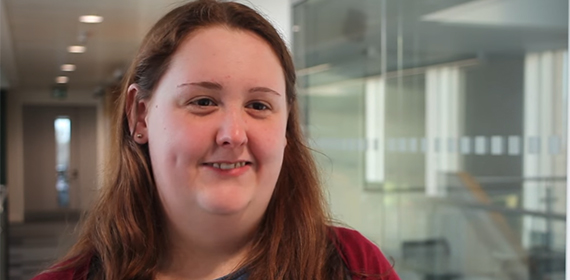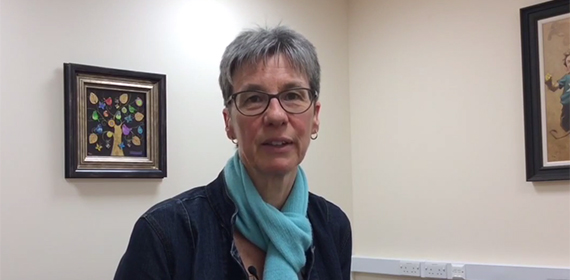It is hard to make sense of the world in which we live without knowing how it came to be the way it is. Whether tracing the root causes for the developments and dilemmas of our own time or considering historical precedents to understand the challenges of today, the study of History brings together past and present in a constant dialogue. At the same time, there is much to learn from exploring the strange otherness of the past. History is not a collection of stories that could happen in any time or place – context matters. Simply recognising that things can and have been different helps us to understand our own time better and gives way to History’s most radical idea: that other ways of living and understanding one another are possible.
Undergraduate courses
History can be studied as a single subject degree as BA (Hons) History or as part of a joint honours degree course along with either English, Politics, Sociology or War Studies.
Postgraduate courses
We offer taught masters courses:
- MA Second World War: Conflict, Societies, Holocaust
- MA Military History by Distance Learning (fully online course)
We also supervise MPhil or PhD students researching a range of topics and welcome informal enquiries about embarking on postgraduate research programmes. These should be directed to the member of staff with the closest fit to your area of interest.
Our large team of historians have published widely on diverse topics, including: the histories of working-class life, living through conflicts and within empires, retail and consumerism, migration and refugees, changing ideas of masculinity and the politics of race, youth culture and the NHS. They have explored how these issues played out in the Black Country and the rest of the United Kingdom, as well as further afield in mainland Europe and in North America. These research activities are organised through the Centre for Historical Research, which also hosts external speakers in a series of research seminars, workshops and conferences, such as our annual Holocaust Lecture.
Our department has established strong links with Wolverhampton City Archives, the local museum at the Wolverhampton Art Gallery, and regional heritage providers including the Black Country Living Museum – all of which students will have the opportunity to visit as part of their course. Wolverhampton offers an ideal setting for you to explore topics that interest you, supported by people passionate about History and committed to supporting your learning along every step of your journey.
All our teaching is reviewed by an external examiner – an academic in the subject area from another university. Here’s what our external examiners say:
"In my time here I have found the staff to be excellent in their teaching and subject knowledge, their assessment and their concern for the students".
“It is clear that the History degree programme at Wolverhampton is delivered by dedicated, hard-working and expert staff. …the use of source material in assessments is particularly impressive: images and artefacts are used very effectively as well as more traditional documentary material. Students evidently respond to these sources well in their written work. I have copied the use of online collections of sources in the assessment of some of my own modules … and feel that this approach encourages the kind of independence and critical thinking that is essential at degree level".
You can begin with a Foundation Year (Level 3) if you are returning to education or need to develop your academic skills and confidence before embarking upon your degree course. Beyond this we offer a wide range of courses reflecting the interests and expertise of our staff. As well as the specifically History-focused modules listed below, you are also able to take several modules from other disciplines, particularly those offered by other courses within our department, such as Politics and War Studies.
At Level 4 (first year) all students will take the core historical skills and theory-based module, The Pursuit of History, which provides you with the foundations for the rest of your studies. Examples of other Level 4 modules include: Early Modern England; The Making of Modern Britain, c.1700-1819; Europe and the Americas, 1776-1914; and Campaigning and Citizenship: Women in Britain and Empire, 1790s-1970s.
At Level 5 (second year) examples of modules include: Migrant Journeys, Migrant Stories: Itinerants, Migrants and Refugees, c.1800-1950; Minorities in the Twentieth-Century United States; Revolutionary Ireland, 1789-1940; Sex and the City: Sexuality in the Long Eighteenth Century; Preserving the Past: Heritage, History and Identity; The Working Class in Twentieth Century Britain; The Social History of Victorian Britain; The Great War, 1914-1918; and The Cold War.
At Level 6 (final year) examples of modules include: America: Rise of a Superpower, 1890-1945; Charity and Campaigning in Modern Britain and Empire; Youth Culture and Popular Music in Twentieth Century Britain; Consumption and the World of Goods: Drink, Drugs and Shopping in Britain, c.1650-1830; The Family in Britain, 1830-1939; two modules covering German history from 1871-1945; and a dissertation Independent Study module.
There are also opportunities to take volunteering and work placement modules during the course of a History degree. After the core modules of Level 4 have provided you with the fundamentals, the range of options available, especially at Levels 5 and 6, really does allow you to follow your developing passions and chart your own course.
Learning takes place through formal lectures, smaller discussion-based seminars, online activities, group work, individual tutorials and through your own independent study. Critically and contextually examining historical sources is central to the study of History, and we were proud to pioneer the use of digital collections in doing this. There will also be the opportunity to visit archives and museums locally and internationally as part of your studies.
Assessment takes a variety of forms including essays, posters, presentations, exams, online activities and shorter written assignments including reports on books, museums, historical sources and more. The range of assessment types means that over the course of your degree you will gain experience in communicating effectively in numerous written and oral formats. This is one of the major benefits studying History brings to developing your transferable skills.
Many History students might not want to go on to write history books for a living, but rest assured that studying History provides you with the competencies to enter careers across a wide range of sectors. A degree in History is a well-established and respected qualification in the eyes of employers across a diverse range of career paths. History graduates have, after all, needed to prove themselves to be individuals with excellent research, analysis and communication skills – skills that all graduate employers value immensely.
Examples of just some of the fields our students have gone on to succeed in include:
- Teaching
- Media and journalism
- Archives and records management
- Museums, conservation and heritage
- Local government and the civil service
- Research and policy in the private, public and voluntary sectors
Our current History staff (teach many modules jointly with our Politics and War Studies staff and work closely with our Academic Coach)
- Dr Adam Burns, Senior Lecturer in History (US history, diplomacy, minorities, history education)
- Dr Simon Constantine, Senior Lecturer in History (German history, migration)
- Dr Ben Curtis, Research Fellow (Wales, disability, mining communities)
- Dr Karin Dannehl, Lecturer in History
- Professor Keith Gildart, Professor of Labour and Social History (working-class history, mining communities, music and youth culture)
- Dr Patrick Glen, Research Fellow (popular music history in post-war Britain)
- Dr George Gosling, Lecturer in History (modern British history, charity and welfare, health and the NHS)
- Dr Richard Hawkins, Reader in History (US history, Jewish history)
- Dr David Hussey, Head of Department for History, Politics and War Studies (the early modern household, retail and consumption)
- Dr Grace Millar, Research Fellow (modern British and New Zealand oral histories, mining communities)
- Dr Christopher Norton, Senior Lecturer in History and Politics (Irish politics and history)
- Professor Johannes-Dieter Steinert, Professor of Modern European History and Migration Studies (German and European history, migration, the Holocaust, WW2)
- Professor Laura Ugolini, Professor of History (gender and masculinity, clothing and consumption, the British Home Front in WW1)


/prod01/wlvacuk/media/departments/media-and-communications/images-18-19/220325-Engineers_teach_thumbail.jpg)
/prod01/wlvacuk/media/departments/media-and-communications/images-18-19/BBR_logo_large.jpg)
/prod01/wlvacuk/media/departments/media-and-communications/images-18-19/Wolves-Story-Thumb.jpg)
/prod01/wlvacuk/media/departments/media-and-communications/images-18-19/220505-BAS9-School-Showcase-Resized.jpg)
/prod01/wlvacuk/media/departments/business-solutions/images/banners/business-we-back-you-500x250.jpg)


